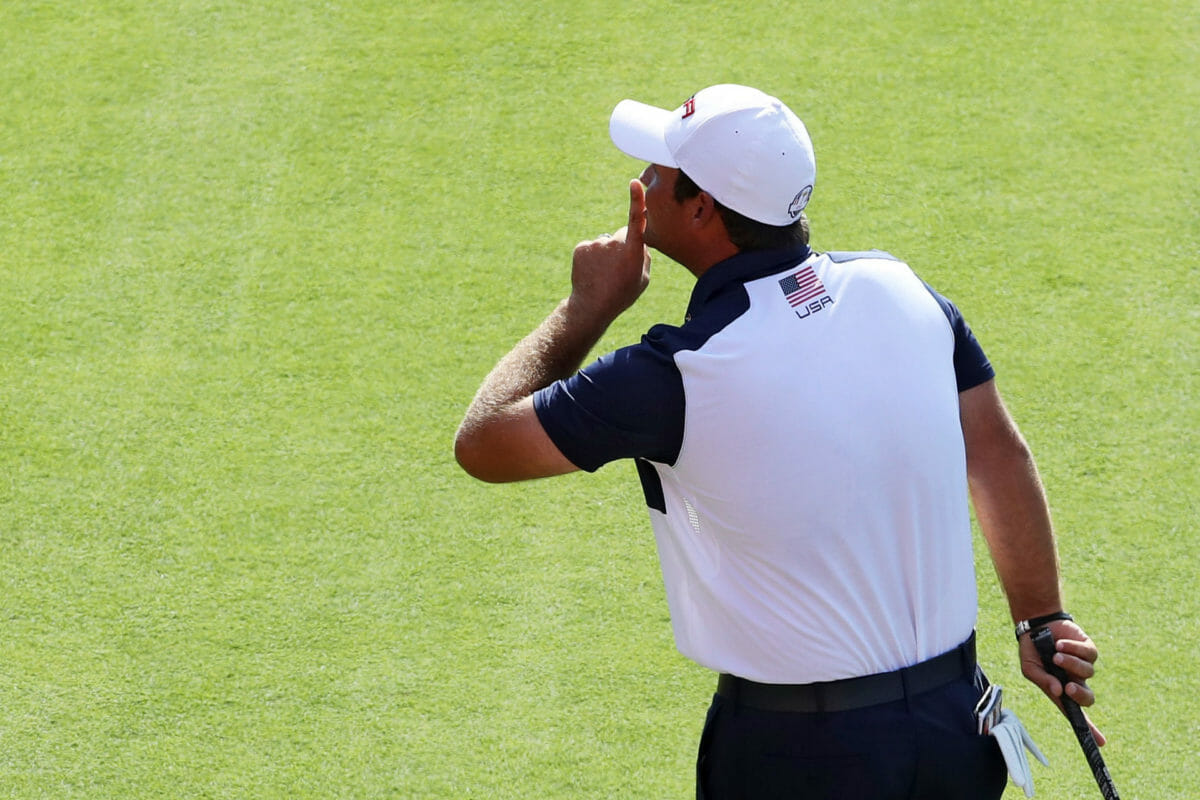According to his book, The Honest Truth About Dishonesty, in which golf gets a whole chapter to itself, Dan Ariely, a Professor of Behavioral Science at Duke University, writes that almost everyone is dishonest to some degree if given the opportunity and there is a better than even chance of getting away with it.
If we remove consequences, nearly every golfer will cheat a little but almost nobody cheats as much as they could. Golfers, apparently, are well capable of performing bizarre mental gymnastics to rationalise small transgressions. When we see people getting away with dishonesty, we are more likely to be dishonest ourselves. That is why there is a perception that the majority of golfers are cheating, and they believe they cannot win without doing it too. It is also why it is important when cheating is discovered it is dealt with fairly and properly.
Ariely’s solution is simple: Make golfers swear a type of Olympic Oath. Remind them that they have a moral code. Ariely believes if golfers signed their scorecards prior to, as well as at the end, of their round they would cheat less.
It’s sad but true that for an individual to cheat consistently there has to be others involved as ‘facilitators.’ Nearly every club has its rump of handicap bandits that dominate the winner’s circle. Their friends play with them; sign their cards and pay up their losses to them without a murmur.
Officialdom gives the impression of sitting on its hands and letting them away with it but what can they do? Climb up trees armed with binoculars and watch every known suspect in the land? If golfers want to abuse the system, there is always a way of doing so. It’s just the fact that they can get away with it and are not punished when ‘rumbled’ that is so annoying.
For whatever reasons, cheating at golf appears to have grown in recent years and the perception is that it is now ‘out of control.’ It’s almost impossible to win a competition without playing ‘miles’ better than one’s handicap. It’s not unusual to see scores of 45-points (i.e. 9-under par!) and upwards in the winner’s enclosure.
The majority (in my opinion) of these ‘lucky winners’ immediately focus their efforts on recovering the excessive, spare shots in hand that they have lost by commencing a handicap building regime, so they can repeat the exercise all over again as soon as possible.
The type of person who builds his handicap in order to gain an unfair edge doesn’t seem to care what others think or that they are only cheating themselves in the long run. Apparently, these so-called sportspeople think winning unfairly is worth risking one’s good reputation.
Handicap cheating occurs at both ends of the spectrum. It’s just as sickening to see some so-called scratch folk struggling to break 85 in national and provincial championships and keeping genuine golfers on the sidelines.
Those with inflated handicaps are seen as a bigger problem than those with handicaps too low for their ability. Golfers who shoot in the high 80’s and 90’s in scratch events are only making fools of themselves. The loosely handicapped golfer who walks away with the big prize is making fools of his club mates.
Checking handicap records reveal nothings. The cheats know how to use the system to their advantage. The use of ‘average score’ instead of a player’s capability is the crux of the matter. That is what may need to change but it won’t be addressed under the new WHS system due to begin at the end of this year.
That a golfer can, if he wants to, maliciously control his own handicap is at the core of the problem. Prior to 1983, influencing one’s own handicap was impossible. Back then, getting cut was easy, getting shots back was hard; these days, it’s the opposite. For me, the entire ethos of the game has changed and made me think that competitive golf is no longer a game worth playing.
The official GUI line is: “Golf is a game of honour. If people decide to cheat, there is no way of stopping them.” There is, of course, but it requires gumption, energy and leadership that appears to be lacking. It is true to say that no matter what system is in place, some golfers will find ways to circumvent it.























Leave a comment